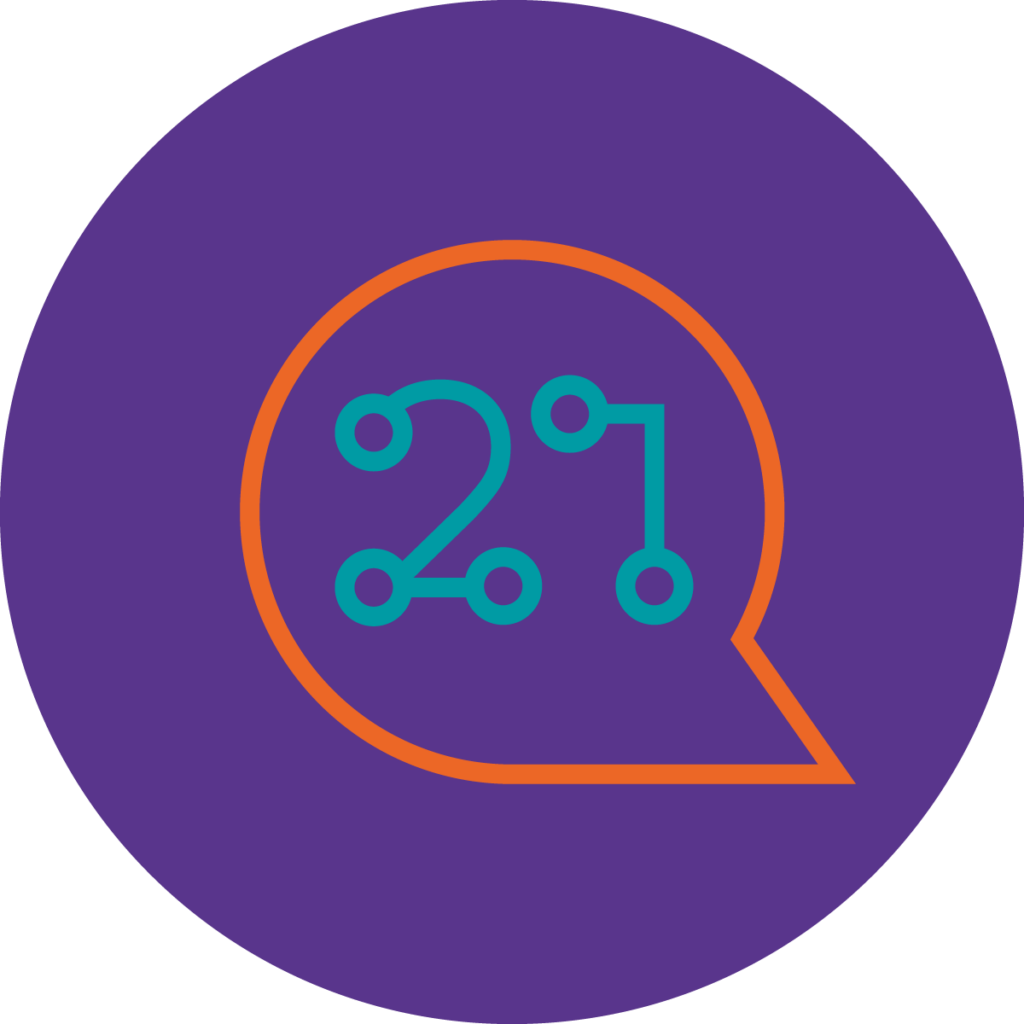At a glance
For: students
Topics: Further developing multilingualism and interculturality, improving career prospects, enabling intercultural mediation roles, realizing equal opportunities, supporting personal development, strengthening self-confidence, accelerating and improving integration
Subproject of StudyCompass
Location: Frankfurt University of Applied Sciences
Recognizing potential, taking advantage of opportunities – strong in college and work
Many students at Frankfurt UAS have spoken several languages since childhood: German - and a language that is rarely learned at school, such as Turkish or Italian... They usually speak and understand this language well - but there are many challenges beyond the everyday language : Almost no one can write in the native language. Some would like to use the language in college, but they do not know the appropriate academic language level. Others would like to be able to use their native language professionally, but they lack the appropriate specialist terminology.
From Arabic to Turkish
At the Frankfurt UAS Language Center you can learn 11 of these heritage languages, from Arabic, Chinese and Kurdish to Russian, Serbian and Turkish. Here, students can expand and improve their native language, always based on their individual level: They can learn to write in self-study courses (currently for Persian and Russian). They deepen their academic and work-related vocabulary and learn to write emails or short specialist texts. They acquire intercultural skills and become mediators between the German culture and their culture of origin.
Social work students can, for example, intervene in social conflict and stressful situations. Business students learn to demonstrate their professional expertise in an international context or in customer contact in Germany in German and in their native language and strengthen their communication skills. In midwifery, linguistic and intercultural skills help to find the right approach to the patient in a psychologically and emotionally challenging situation such as birth. These examples can be continued in many ways. They show that heritage speakers can play an important bridging role in their respective academic or professional environments. Multilingualism is relevant in professional life and for mobility - but also for social cohesion and for one's own personality.
In this sense, knowledge of native languages is a resource that many students bring with them and that can be recognized and expanded through the Frankfurt UAS heritage language program. In contrast to acquiring a foreign language, the language basics for native languages are already there: the learning process is shorter and a professional level is reached much more quickly.

Knowledge of the language of origin is important for a successful educational career and professional activity, for identity development and intercultural competence, and due to its bridging function it is an important component of integration and social responsibility, including at the university.

The language of origin is a resource in the context of globalization processes and, last but not least, a building block in the further development of German skills. Knowledge of the language of origin is important for a successful educational career and professional activity, for identity development and intercultural competence, and due to its bridging function it is an important component of integration and social responsibility, including at the university.
To clarify, here are two statements from course participants:
“In the area of urban planning, there is a network that is responsible for the exchange between German-Chinese companies (NAX Architekturexport). Since I have improved my Chinese, I would continue to use my Chinese skills. My current internship provider (Schneider+Schumacher Architectural Office) is also interested in this qualification.” (Sophie Simone Steiner, FB1)
“I am a native speaker of Polish and Russian and was able to benefit greatly from the courses offered... It is not only an advantage for me to speak these languages in a personal context, but also in the world of work. As a prospective social worker, I have a lot to do with people from different backgrounds in my work in a drug counseling center. My language skills in Russian, Polish and Spanish are often not only an advantage, but essential in communicating with clients!” (Lea Rassadin, FB 4)
Contact person in
Dr. Sabine Schmidt | Dr. Elena Tchernega Meinert , Frankfurt University of Applied Sciences




